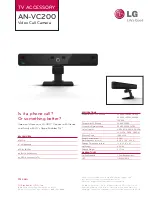
180
5
Ed
itin
g
an
d Pri
ntin
g I
ma
ge
s
10
Press the
4
button.
The camera returns to
Q
mode and the processed image
is displayed.
This mode lets you change the color tones and perform special
processing on a selected image.
You may not be able to process images in the following situations:
•
When the size of face taken in relation to an image is too large
or too small
•
When faces are located in the edges of an image
In such cases, the face detection frame in Step 4 will not appear.
Using the Digital Filters
B&W/Sepia
Changes color images to black and white or processes usnig
the sepia filter.
Toy Camera
Images seem to have been taken with a toy camera.
Retro
Images have the feel of old photos with a white border. You can
choose from three filters: Original image, amber, and blue.
Color
Processes the image using the selected color filter. You can choose
from six filters: red, pink, purple, blue, green, and yellow.
Extract Color
Processes the image using the selected color extraction filter.
You can choose from three filters: red, green, and blue.
Color Emphasis There are 4 filters: Sky Blue/Fresh Green/Delicate Pink/Autumn
Leaves.
High Contrast
Adjusts the contrast of the captured images.
Starburst
Processes the image with a special sparkling look achieved by
adding cross-like effects to a highlighted area, such as town lights
at night, light reflected from water, or other light sources.
You can choose from three filters: Cross, Heart, and Star.
Soft
Processes the image into a soft image that appears soft overall.
Fish-eye
Applies a fish-eye lens effect to images.
Brightness
Adjusts the brightness of the image.
Miniature
Blurs part of the image to create a fake miniature scene.
Panoramic images, movies or images taken with another camera cannot
be edited using Digital Filter function. An error message appears if you
choose this function from the Playback Mode Palette and press the
4
button.
WG20_OPM_ENG.book Page 180 Wednesday, February 5, 2014 2:20 PM
















































